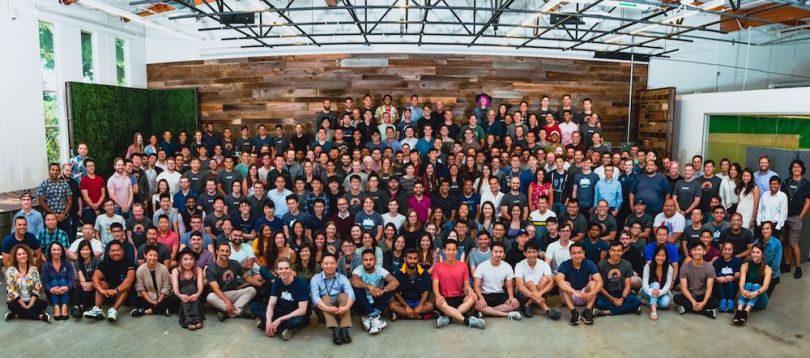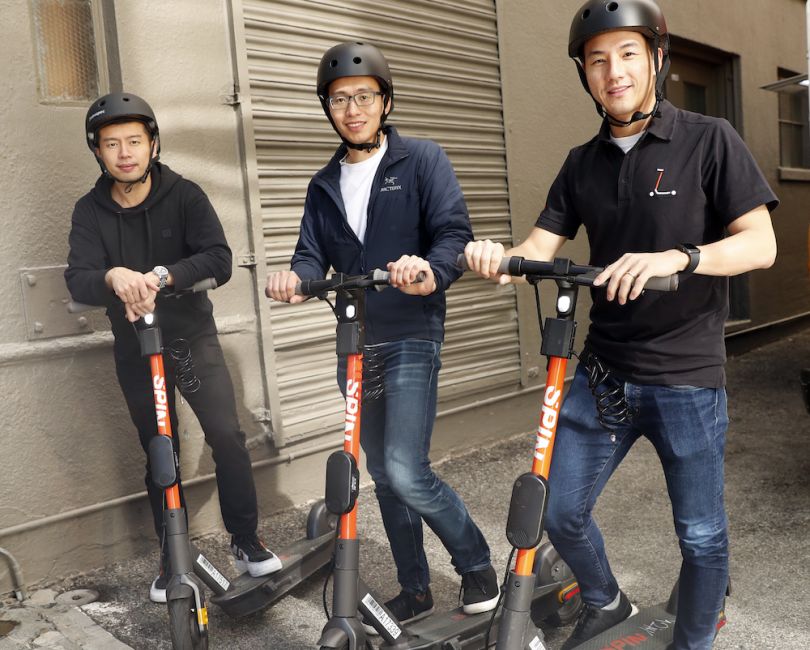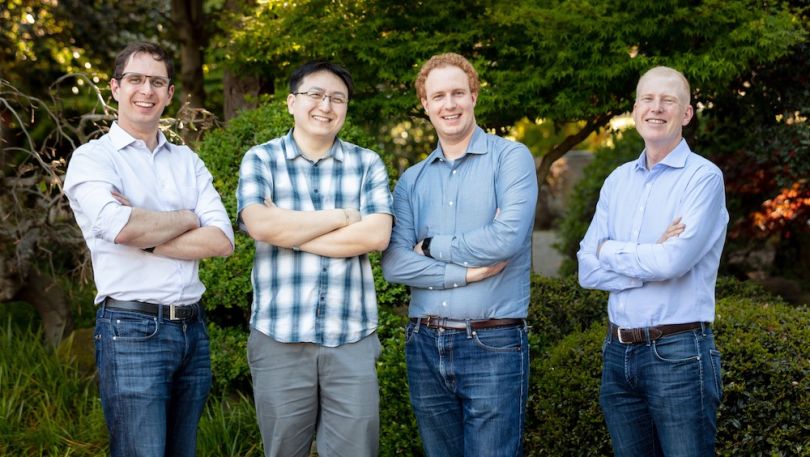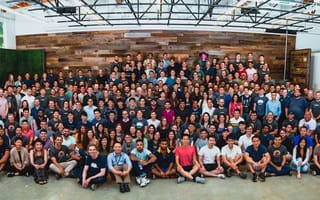The continued growth of the “Internet of Things” (IoT) has made the need for unified networks across devices paramount. Such networks include home “command center” apps that allow users to view and control their connected devices in one place and cloud-based building security systems that funnel camera feeds and access points through a single platform. Meanwhile, businesses, campuses and cities are leveraging existing mobility and office management networks — across hundreds or thousands of devices — to help return some semblance of normality under the pandemic.
IoT Is Big and Getting Bigger
Here, we take a look at how IoT networks — all built in the Bay Area — are shaping the future of how we work and play.

Relying on delivery changes the life of a building
Much of the discussion around the coming of self-driving cars centers around passenger vehicles — how long until your ride-hailing driver is a robot, or until your commuter vehicle becomes a mobile office? However, the prospect of autonomous delivery services has the potential to reshape society in even more fundamental ways.
That’s the argument put forward by Mountain View-based Nuro, whose diminutive robotic vehicles are already delivering goods from CVS pharmacies across three Houston zip codes. Based on a recent analysis of projected driving habits in California, the company estimates that 100 percent adoption of autonomous delivery vehicles in the state between 2025 and 2035 would have multiple transformative benefits. These include offsetting the emissions produced by powering every home in Sacramento County for ten years, saving every Californian an hour per week of driving time and preventing more than 18,000 severe traffic accidents.
An R2 vehicle could slam on the brakes when a ball rolls across the road without fear of causing whiplash.”
Nuro explained in a recent blog post that self-driving software can focus on protecting other humans on the road, instead of making tradeoffs for a non-existent occupant in the vehicle. .
“An R2 vehicle could slam on the brakes when a ball rolls across the road without fear of causing whiplash, or operate more conservatively in the first place without concern for making a rider late to a meeting.”

Social distance mobility
Once seen as a novel supplement to mass transit, individual mobility services are quickly becoming an essential alternative under social distancing requirements. One company that has jumped on this solution is Spin, which is partnering with college campuses, cities, community groups and businesses to deliver dockless scooter-share services.
As transit ridership plummeted in Portland, Oregon this year, the city partnered with Spin to classify the micromobility service — where users find and unlock electric scooters through an app — as “essential.” This involved temporarily reducing or waiving the usual municipal fees for shared micromobility operators, and expanding the city’s fleet of Spin scooters with 250 additional units.
[Spin] lowered the cost for e-scooter use for all Portlanders and provided an outdoor, healthy transportation option.”
“As this healthcare crisis emerged, we knew Portlanders would need access to transportation for critical trips,” Portland Bureau of Transportation spokesperson Dylan Rivera told Spin in a recent blog post. “We appreciate Spin’s partnership, which lowered the cost for e-scooter use for all Portlanders and provided an outdoor, healthy transportation option, as other options became more limited.”

Pandemic-safe office reopening
In normal times, office staff could track visitors through digitized sign-in services, manage mail deliveries and reserve meeting rooms through a unified platform using software like San Francisco-based Envoy. As businesses look to reopen their offices, these services now have an even more important role to play: facilitating social distancing and safe office reentry.
In May, Envoy announced an open beta of its new “Protect” service, a portal that allows admins to check in on employee health and wellness, register and approve employees for entry to a facility on any given day, set a capacity limit to prevent overcrowding and enforce it all through access control. By June, more than 2,000 companies had already signed up, including Lululemon, Pinterest and 23andMe.
The way we work will never go back to the way it was before.”
“Even after we emerge from the crises of today, the way we work will never go back to the way it was before,” founder and CEO Larry Gadea said in a June press release. “But we know that there’s still value in and a need for working closely alongside your colleagues… Now more than ever, the office needs innovative systems that prioritize the experience and privacy of the people using them, and we’re ready to help more companies bring their teams back to the workplace.”

Cloud-based building security
Outfitted with smart appliances, remotely controlled HVAC systems and robotic vacuum cleaners, it stands to reason that the modern building’s security and access systems increasingly run on cloud-based networks. One example is Verkada, which builds centralized security systems across card readers, security cameras and a software portal that allows users to remotely view and control access points.
As workers in a Verkada-secured facility come and go, card readers — which respond to cards and mobile access alike — log events, which are tied to timestamps on associated cameras. This allows administrators to track entries and exits by user or by access point. New users can be assigned to pre-set groups with certain access privileges, and lock and unlock doors remotely. The company says its services do away with on-premise security servers and problems of scale as organizations grow across multiple facilities.
When we started Verkada, we recognized how complex and fragmented the building was.”
“When we started Verkada, we recognized how complex and fragmented the building was,” CEO and co-founder Filip Kaliszan said in a recent press release announcing new cloud-based access control functionality. “With the introduction of our access control solution, we’re continuing our mission of bringing greater simplicity to manage and integrate the essential control solutions that run our buildings.”

Connected home infrastructure offers new network visibility
As more and more appliances and devices plug into the internet, demands on traditional WiFi systems have increased. Plume bills itself as a new kind of home internet provider, with a software suite called Smart Home Services housed within a mobile app that functions as a kind of home command center. Founded in 2015 and led by CEO Fahri Diner, pictured above, Plume automatically regulates bandwidth to optimize performance across devices, and offers users visibility into how different devices are interacting with one another.
According to Plume’s own data, the company’s systems saw the number of at-home active devices skyrocket as offices closed and shelter-in-place orders went into effect nationwide. While those numbers peaked in March and April, they still remain up to 90 percent higher than pre-pandemic levels in some areas.
Many of us have now come to rely on our home network as our link with friends and family, a way to get on with work and a place to be entertained.”
“Many of us have now come to rely on our home network as our link with friends and family, a way to get on with work and a place to be entertained,” CMO Todd Grantham wrote in a March blog post. “As a group of people who set out to design an infrastructure to support the growth of smart homes, our first mission was to ensure Wi-Fi just worked.”



